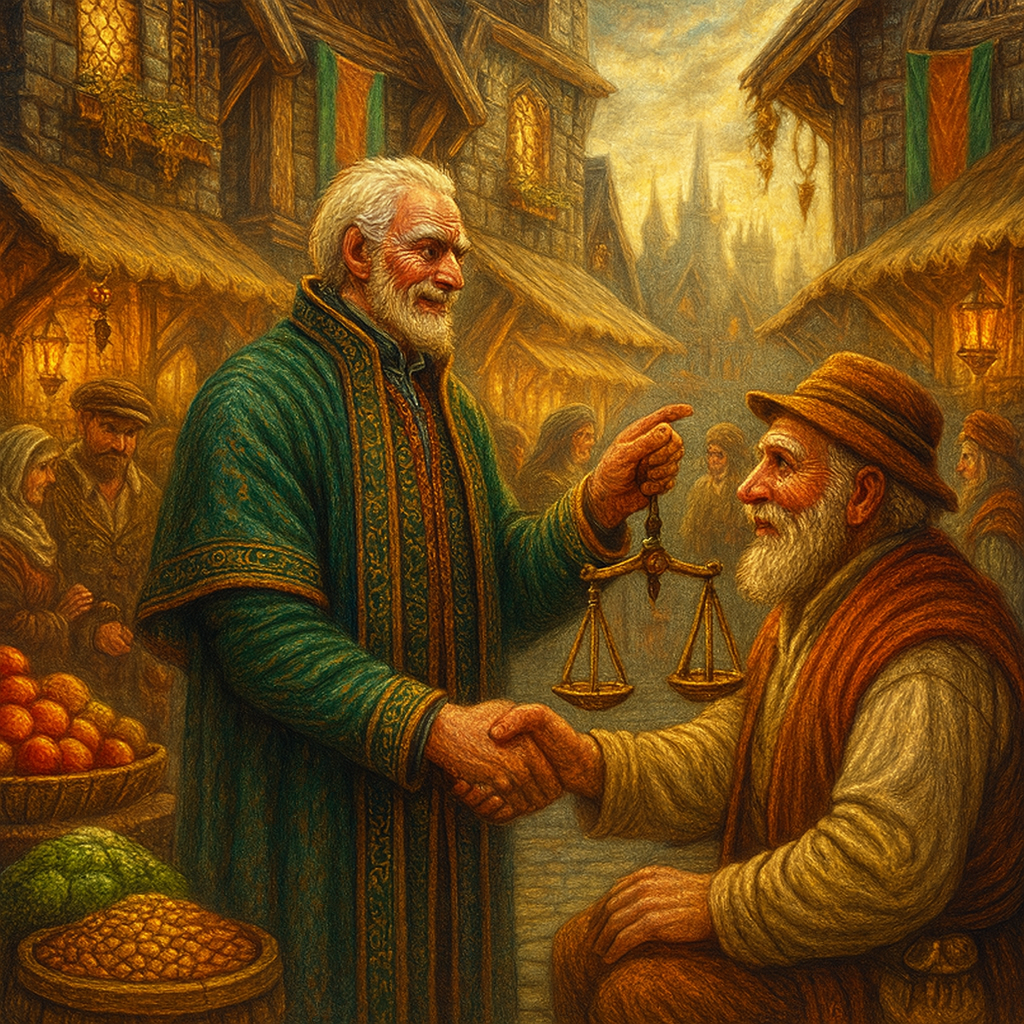Fair Trades
"A crooked merchant buys their own doom, piece by piece."
The markets of Everwealth are more than places of trade, they are the rhythm and breath of a broken kingdom, stitched together by the sound of barter and the scent of brine, brass, and roasted grain. Here, among sun-bleached awnings and soot-streaked stone stalls, survival is not a solitary feat but a shared ritual. Trade is law. Not the kind enforced by sword or scribe, but older, spoken in looks, nods, and oaths. Markets are where the weary meet the willing, where a sack of amber potatoes may be worth more than silver if the vendor trusts you, and where the phrase “your weight, your word” still means something in the rust-choked heart of Everwealth. Fairness in trade is not an ideal, it is a defense against collapse. In a kingdom still limping from The Great Schism, where guilds feud, magick falters, and the wilds press in like hungry tides, the market square is one of the few places where honor still holds real weight. Cheating a fellow merchant, watering down dye, or using magick to glamor faulty goods is treated as worse than theft, as-often as it seems to occur; It is an attempt to erode the one institution not yet swallowed by corruption. Some cities, like Bordersword or Catcher's Rest, even empower vigilante justice or local market judges, chosen from elder traders, to mediate disputes with the authority to ban, brand, or bleed the guilty if the breach is grave enough. Haggling, of course, is expected, celebrated, even. A well-fought deal is a kind of art, and cleverness in negotiation earns admiration, not scorn. But there is a line, ancient and unwritten. To lie is different than to press for value. A seller who lies about the origins of meat, particularly in lean months, is rarely seen again. In Opulence, whisperers say The Merchant's Consortium keeps a blacklist of names never to be trusted. In The Folklands, stories tell of spirits who pose as buyers, testing the honesty of stall-keepers and dragging deceivers into bog or briar if crossed. Whether truth or tale, the fear ensures that even the poorest farmer weighs their barley fair. Markets are also centers of news, rumor, and informal governance. Deals struck here may ripple into politics. Entire harvest seasons can be shaped by a single negotiation for salt or transport. Some stalls have stood for generations, outlasting fires, floods, and coups, handed down like heirlooms, the wood worn smooth by hands that fed entire bloodlines. Others are makeshift, refugee-built, patched in tarp and resolve. But all carry the same hope: that in trade, in talk, in shared need, there is still something left of the world worth saving. Among the Everwealthy, the market is one of the few sacred places not ruled by priest or crown. And while a temple may cleanse your sins, and a guild may buy your loyalty, only the market can keep your children fed. It is a temple of coin, yes, but also of trust. And in a land where even the gods grow quiet, trust is the last currency that still holds value.



Comments